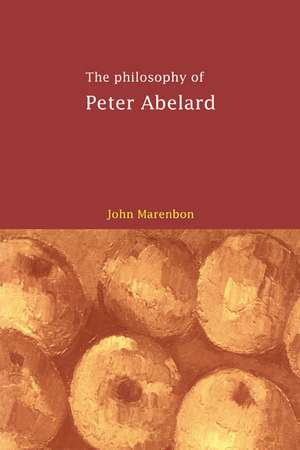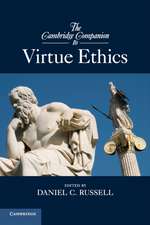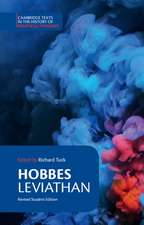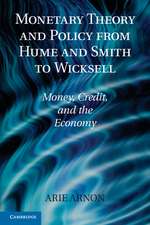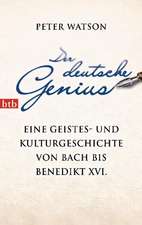The Philosophy of Peter Abelard
Autor John Marenbonen Limba Engleză Paperback – 22 sep 1999
| Toate formatele și edițiile | Preț | Express |
|---|---|---|
| Paperback (1) | 399.89 lei 43-57 zile | |
| Cambridge University Press – 22 sep 1999 | 399.89 lei 43-57 zile | |
| Hardback (1) | 533.55 lei 43-57 zile | |
| Cambridge University Press – 19 feb 1997 | 533.55 lei 43-57 zile |
Preț: 399.89 lei
Nou
Puncte Express: 600
Preț estimativ în valută:
76.53€ • 79.44$ • 63.81£
76.53€ • 79.44$ • 63.81£
Carte tipărită la comandă
Livrare economică 24 martie-07 aprilie
Preluare comenzi: 021 569.72.76
Specificații
ISBN-13: 9780521663991
ISBN-10: 0521663997
Pagini: 396
Dimensiuni: 152 x 229 x 22 mm
Greutate: 0.58 kg
Ediția:Pbk.
Editura: Cambridge University Press
Colecția Cambridge University Press
Locul publicării:Cambridge, United Kingdom
ISBN-10: 0521663997
Pagini: 396
Dimensiuni: 152 x 229 x 22 mm
Greutate: 0.58 kg
Ediția:Pbk.
Editura: Cambridge University Press
Colecția Cambridge University Press
Locul publicării:Cambridge, United Kingdom
Cuprins
Preface; List of abbreviations; Note on the reference system; Introduction; Part I: 1. A life; 2. Teachings and writings on logic; 3. Abelard's theological project; Excursus I: the letters of Abelard and Heloise; Conclusion: Abelard's logic and his theory; Part II: Introduction; 4. Logic, philosophy and exegesis; 5. Substance, differentiae and accidents; 6. Forms and language; 7. Perception and knowledge; 8. Universals; Conclusion: dicta, non-things and the limits of Abelard's ontology; Part III: Introduction; 9. Ethics, God's power and his wisdom; 10. God's goodness: theodicy and the meaning of 'good'; 11. Act, intention and consent; 12. Contempt, law and conscience; 13. Virtue, love and merit; Excursus II: love, selflessness and Heloise; 14. Ethics, society and practice; Conclusion: Abelard's theological doctrines and his philosophical ethics; General conclusion; Appendix: Abelard as a 'critical thinker'; Select bibliography; Index.
Recenzii
'… most satisfying to read, combining a clear sense of purpose with an exemplary clarity of thought. It is difficult to overestimate its importance for the study of Abelard and of twelfth-century intellectual culture in general.' Early Medieval Europe
'… not only an outstanding exposition of Abelard's philosophy, but a work that opens up for specialists and non-specialists the world of twelfth-century thought.' The Times Literary Supplement
'… not only an outstanding exposition of Abelard's philosophy, but a work that opens up for specialists and non-specialists the world of twelfth-century thought.' The Times Literary Supplement
Descriere
This 1997 book offers a major reassessment of the philosophy of Peter Abelard (1079–1142).
